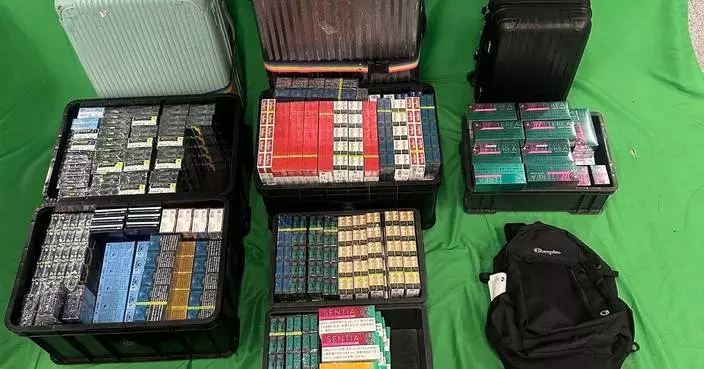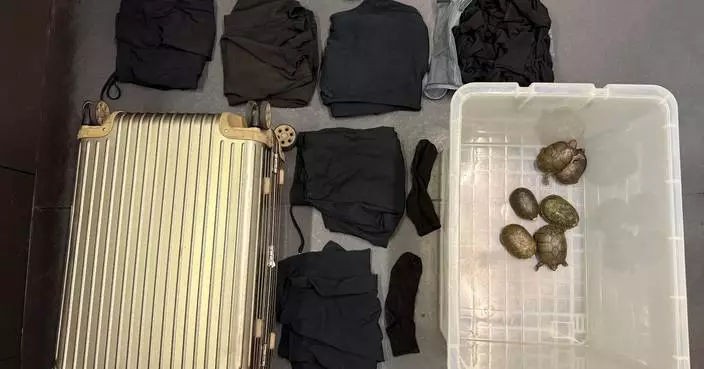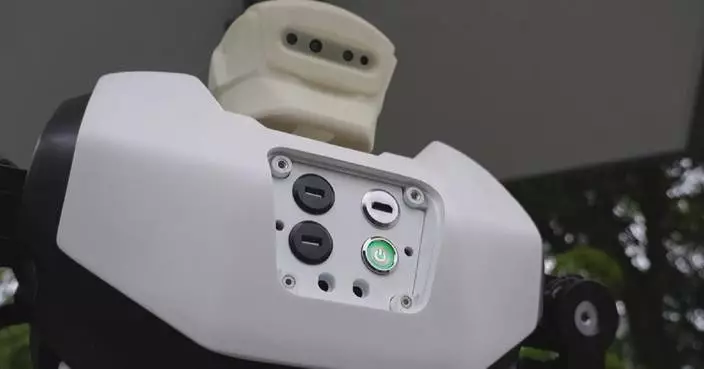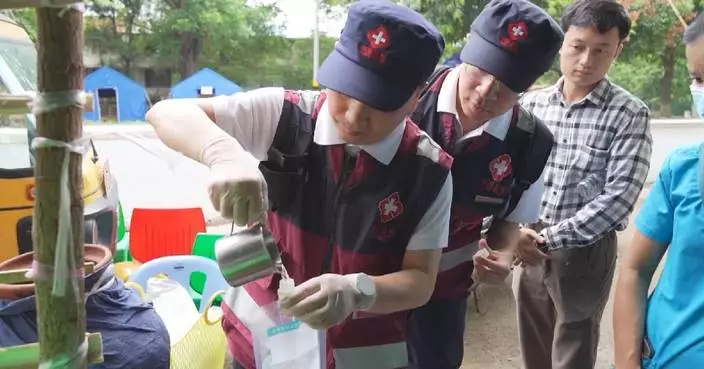DH announces latest situation of Legionnaires' Disease cases
The Centre for Health Protection (CHP) of the Department of Health today (April 22) reported the latest number of cases of Legionnaires' disease (LD), and reminded the public of the importance of using and maintaining properly designed man-made water systems, adding that susceptible groups should strictly observe relevant precautions.
From April 13 to 19, the CHP recorded two community-acquired LD cases. The details of the cases are as follows:
The CHP is conducting epidemiological investigations to identify potential sources of infection, high-risk exposure and clusters, if any.
As of April 19, 42 LD cases had been recorded this year. In 2024 and 2023, there were 135 and 121 LD cases respectively.
Men, people aged over 50, smokers, alcoholics and persons with weakened immunity are more susceptible to LD. Some situations may also increase the risk of infection, including poor maintenance of water systems; living in areas with old water systems, cooling towers or fountains; using electric water heaters, whirlpools and spas or hot water spring spas; and recent stays in hotels or vessels.
Legionellae are found in various environmental settings and grow well in warm water (20 to 45 degrees Celsius). They can be found in aqueous environments such as water tanks, hot and cold water systems, cooling towers, whirlpools and spas, water fountains and home apparatus that support breathing. People may become infected when they breathe in contaminated droplets (aerosols) and mist generated by artificial water systems, or when handling garden soil, compost and potting mixes.
Immunocompromised persons should:
The public should observe the health advice below:
The public may visit the CHP'sLD page, theCode of Practice for Prevention of LDand theHousekeeping Guidelines for Cold and Hot Water Systems for Building Managementof the Prevention of LD Committee, and the CHP'srisk-based strategyfor prevention and control of LD.
Government announces extension of Elderly Health Care Voucher Greater Bay Area Pilot Scheme to cover all nine Mainland cities in GBA
The Government announced today (May 2) the extension of the Elderly Health Care Voucher Greater Bay Area Pilot Scheme to include 12 additional medical institutions in the Guangdong-Hong Kong-Macao Greater Bay Area (GBA), with a view to offering more convenience for eligible Hong Kong elderly persons to use Elderly Health Care Vouchers (EHCVs) in the GBA. The number of pilot medical institutions under the Pilot Scheme will be significantly increased from the current seven to 19, covering all the nine Mainland cities in the GBA. Together with the two existing service points operated by the University of Hong Kong-Shenzhen Hospital (HKU-SZH), a total of 21 service points in the GBA will be allowed to use EHCVs, benefitting more than 1.78 million eligible Hong Kong elderly persons.
All the 12 medical institutions newly included in the Pilot Scheme (see Annex for details) are Tier III Class A hospitals providing integrated healthcare services (including dental services). They are:
GBA city
Name of medical institution
Guangzhou
Guangdong Clifford Hospital
Guangdong Provincial Hospital of Chinese Medicine
Shenzhen
(including the Qianhai Shenzhen-Hong Kong Modern Service Industry Co-operation Zone)
Shenzhen Hospital of Southern Medical University
Peking University Shenzhen Hospital
Zhuhai
The FifthAffiliated Hospital, Sun Yat-sen University
Zhuhai People’s Hospital
Foshan
The First People’s Hospital of Foshan
The Eighth Affiliated Hospital of Southern Medical University
(Previously: Shunde Hospital of Southern Medical University)
Huizhou
Huizhou Central People’s Hospital
Zhongshan
Zhongshan Hospital of Traditional Chinese Medicine
Jiangmen
Jiangmen Central Hospital
Zhaoqing
The First People's Hospital of Zhaoqing
The Secretary for Health, Professor Lo Chung-mau, said, "The main purpose of implementing the Pilot Scheme is to offer more convenience and flexibility for eligible Hong Kong elderly persons by providing more service points for them to better use their EHCVs for primary healthcare services to improve their health. The service points of the Pilot Scheme are meticulously planned to extend to GBA cities that are not yet covered, namely Zhuhai, Foshan, Huizhou, Jiangmen and Zhaoqing, as well as to set up additional service points in the GBA cities that are already covered. The extension of the Pilot Scheme also includes Chinese medicine hospitals for the first time to provide eligible elderly persons with additional choices in healthcare services.
"I would like to express my heartfelt gratitude to the Health Commission of Guangdong Province (GDHC) and the health authorities of relevant cities for providing us invaluable advice and tremendous help on selecting suitable medical institutions and the regulations relevant to the monitoring of healthcare quality and fee level, among others, during the implementation of the Pilot Scheme."
The Chief Executive's 2024 Policy Address announced the extension of the Pilot Scheme to cover nine Mainland cities in the GBA last October. The Health Bureau (HHB) and the Department of Health (DH) have thereafter promptly taken forward the relevant work proactively, including seeking advice and recommendations from the GDHC, inviting medical institutions to briefing sessions, and conducting site visits.
The service scope eligible for claims for the EHCVs at medical institutions under the Pilot Scheme will be largely the same. The arrangements for shared use of EHCVs between spouses and the EHCV Pilot Reward Scheme are also applicable. Moreover, eligible elderly persons have to register with eHealth. The "Cross-boundary Health Record" and "Personal Folder" functions of the eHealth mobile application will also be applicable to the medical institutions under the Pilot Scheme, with a view to offering convenience for Hong Kong citizens to self-carry their electronic health records for cross-boundary uses.
To ensure the proper use of public money, the DH adopts a robust monitoring mechanism for checking and auditing EHCV claims, including routine checking, monitoring and investigating in respect of aberrant transactions, and investigations into complaints. In the monitoring issues and investigations of the Pilot Scheme, apart from the above measures, the DH has established a mechanism with the health authorities of the Mainland, through which the health authorities of the Mainland will provide assistance to the DH when necessary, with a view to enhancing its monitoring capabilities and ensuring the proper reimbursement of EHCV claims to the participating medical institutions under the Pilot Scheme.
The HHB and the DH are working on the follow-up arrangements with various new pilot medical institutions, such as personnel training, financial arrangements and system configuration. It is expected that the new pilot medical institutions will gradually launch the relevant arrangements by the fourth quarter of this year.
Launched by the Government in 2009, the Elderly Health Care Voucher Scheme (EHVS) currently subsidises eligible Hong Kong elderly persons aged 65 and above with an annual voucher amount of $2,000 (with the accumulation limit set at $8,000) for them to choose in their own community private primary healthcare services that best suit their health needs. The Government launched the Pilot Scheme last year to extend the coverage of EHCVs to suitable medical institutions in the GBA. As at September of the same year, the coverage of EHCVs has been extended to seven integrated medical/dental institutions located in Guangzhou, Zhongshan, Dongguan and Shenzhen.
Members of the public may refer to the EHVS website (www.hcv.gov.hk) or call the hotline (2838 2311) for more information on EHVS.

















































